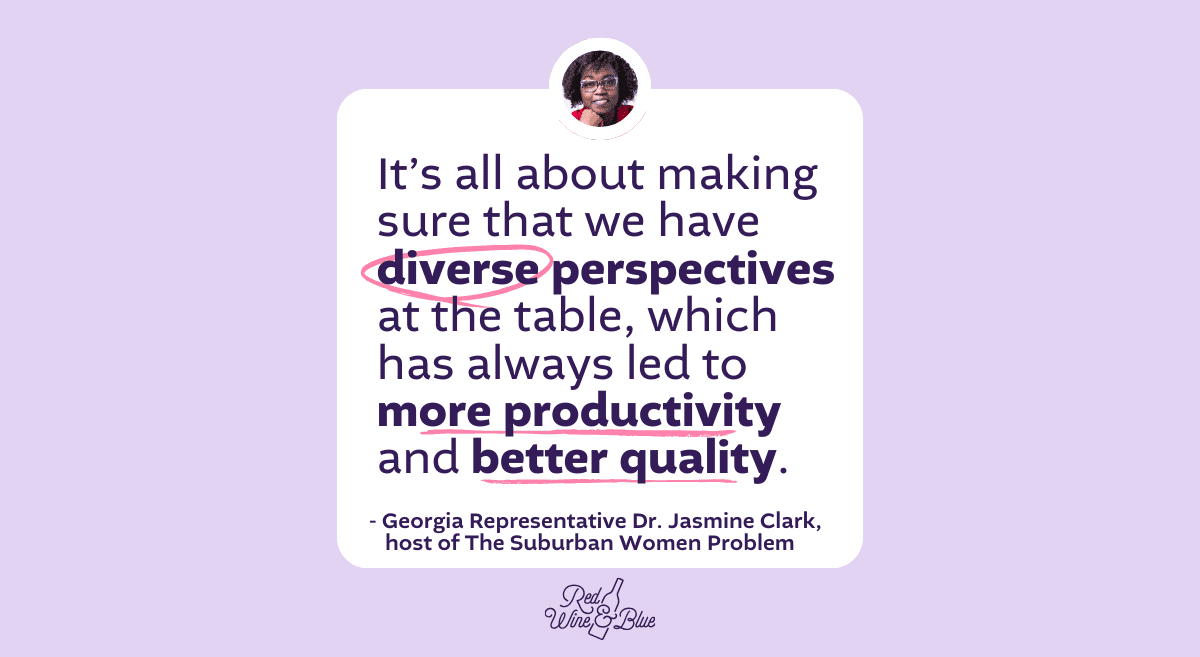You’ve probably heard the term “DEI” — an acronym for “Diversity, Equity, and Inclusion” — a lot lately. Far-right extremists are attacking the concept and want to end DEI programs for good.
Unfortunately, their plan is working.
Companies like Walmart and Target have ended their DEI policies. Since 2023, more than 230 colleges and universities in 34 states have stopped programs because of anti-DEI laws or mandates — the same year the U.S. Supreme Court ended affirmative action. President Donald Trump has already issued executive orders and memos that end all federal DEI-related programs and positions. People who work in DEI are losing their jobs. And Trump and members of his cabinet had the nerve to blame DEI for recent tragedies like the D.C. plane crash and the L.A. wildfires.
But when people understand what it truly is, the majority of Americans support DEI and say it’s a good thing, so let’s learn a little more about it.
What is Diversity, Equity, and Inclusion (DEI)?
Diversity refers to the differences among people like: race, ethnicity, gender, sexual orientation, age, religion, physical ability, class, and more. Equity means treating everyone fairly and giving them equal opportunities. Inclusion means creating an environment where everyone feels welcome, safe, valued, and heard.
So taken as a whole, DEI means any effort or program instituted to protect us from discrimination! The goal of DEI programs is to make sure that everyone has equal access to school and job opportunities, and that they are treated fairly. Examples include:
- Recruitment programs for women in jobs that have historically been dominated by men.
- Efforts to close gender pay gaps.
- Flexible work hours or locations for working parents.
- Family and all-gender restrooms in public spaces.
- Development programs for young minority leaders.
- Accessibility measures for people with physical disabilities.
- Federal grants and contracts for small business owners who have historically been passed over, like Black or Hispanic women.
- Programs to help first-generation college applicants navigate their admissions process.
When did DEI start?
DEI programs started during the Civil Rights movement, which drew attention to the systemic racism that kept non-whites from getting an equal education, jobs, and fair treatment. Segregation and workplace discrimination became illegal through efforts like the Equal Pay Act of 1963, The Civil Rights Act of 1964, the establishment of the Equal Employment Opportunity in 1965, the Age Discrimination in Employment Act of 1967, and countless other executive orders and acts that followed.
Over the next six decades, the federal government, schools, and private companies implemented DEI programs to break down barriers to access, to combat biases in hiring and admissions, and to make sure that applicants and employees were treated fairly and equally. And you know what? It turns out that DEI programs benefit companies and organizations too!
How does DEI benefit an organization?
DEI policies help organizations find the most qualified and talented candidates out of the largest possible pool. Despite what critics say, DEI brings more merit to the table. And it doesn’t tell an organization who to choose, it just gives them more people to choose from. Then, it makes sure that everyone is supported and treated fairly once they’re in the room.
Research shows that diversity brings more quality and productivity to a team. DEI combats the mediocrity that can occur when everyone looks and thinks the same way, especially in organizations that were built by “good ol’ boy” networks and nepotism.
Diversity also improves a team’s creativity and communication, and a business’s success. That’s why more than 60 U.S. companies supported affirmative action in a brief to the U.S. Supreme Court in 2022.
Companies that value DEI and that have more racial and gender diversity in their leadership are proven to be more profitable. That makes sense, because these businesses actually look and think like their customers, so they’re more responsive to their needs.
Standing up for DEI
DEI is good for everyone — individuals, schools, and businesses. Ending DEI programs will roll back the progress we’ve made towards equality since the Civil Rights movement, and it will hurt more groups of people than its critics might think — even themselves! It’s up to us to inform everyone we know about how we ALL benefit from DEI, and to fight for it to continue.


